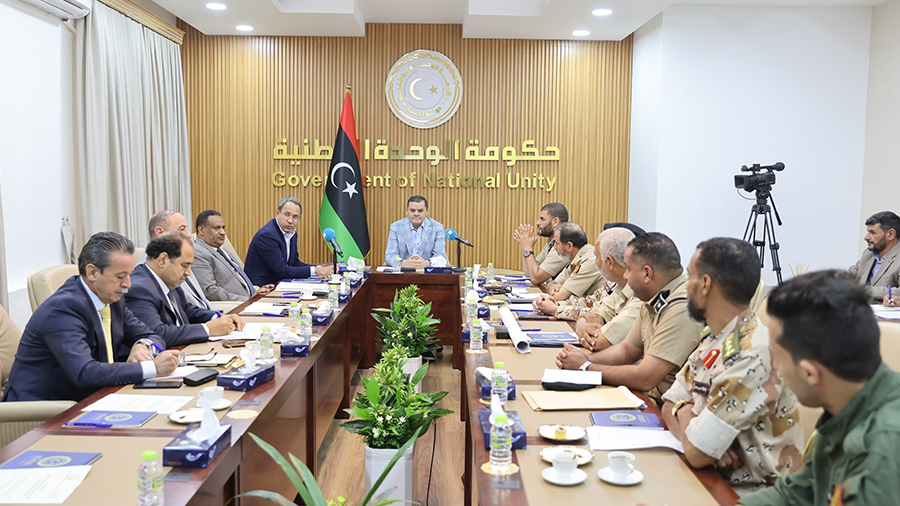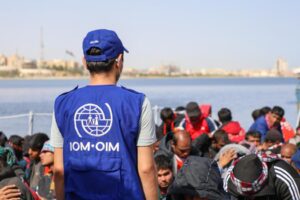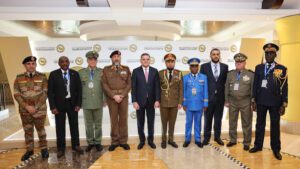Libyan prime minister Abdulhamid Dbeibah has held a meeting with the Ministries of Interior and Foreign Affairs as well as the Joint Staff to address the rising challenges on the Tunisian border regarding the expelled migrants crisis.
The meeting comes at a time when the Libyan-Tunisian border is in a state of emergency with hundreds at least of African migrants stuck between the two countries, amid accusations that Tunisian authorities had “deliberately” deported them towards Libya.
According to the media office of the Government of National Unity (GNU), Dbeibah instructed forming a joint working group representing the attending institutions in order to coordinate efforts concerning the large influx of irregular migrants coming from Tunisia, after they were forcibly driven out towards the borders.
Discussions were held to follow up on the security situation on the Libyan-Tunisian border, and the situation of African migrants at the border, in the presence of the designated Interior Minister Emad Trabelsi, the undersecretary of the Ministry of Foreign Affairs, Muhammad Zaidan, the chief of the Border Guard, the commander of the 19th Brigade, the director of the Foreign Affairs department in the Council of Ministers, and several department directors from the Ministries of Interior and Foreign Affairs.
The GNU media office indicated Dbeibah assured that Libya will not be a country of resettlement for migrants, stressing the need to unify national efforts regarding the immigration file, and directed the Border Guard and the 19th Brigade on the need to deal humanely with migrants and provide the necessary needs for them. The prime minister also emphasized that the inflow of the expelled migrant groups into Libya is not to be allowed and that arrangements with the Tunisian side must be conducted to facilitate the return of the migrants to their countries, in which Libya will ensure all necessary logistical procedures.
Irregular immigration poses a major challenge to the Libyan government, which seeks to address this file through local efforts, intensive coordination with neighboring countries, and the provision of basic needs for migrants.
Source: Government of National Unity + Libya Alahrar





